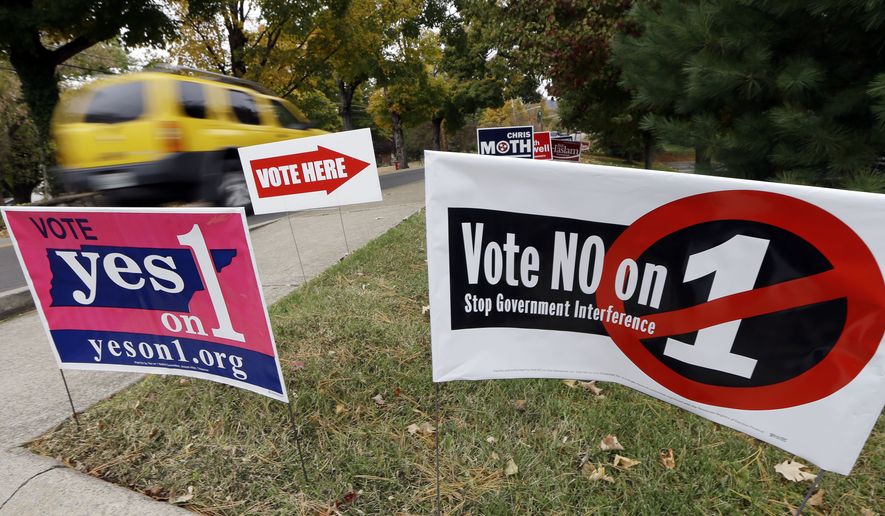A nationally watched Tennessee abortion amendment was passed overwhelmingly on Nov. 4, but pro-choice supporters are asking a federal judge to force a recount or set aside their loss on the grounds that the votes weren’t properly tallied.
Tennessee officials and amendment supporters are shaking their heads over the lawsuit, saying Amendment 1 clearly won by any accounting — and state officials used the same counting process that has been used since the 1950s.
The lawsuit is “an act of desperation” on opponents’ part, Brian Harris, president of Tennessee Right to Life and a coordinator for the “Yes on 1” campaign, said Tuesday.
State officials, like Secretary of State Tre Hargett, said the lawsuit is without merit, as there has never been a requirement that people must vote for everything on a ballot. Amendment 1 declared that nothing in the state constitution establishes a right to abortion, as the state Supreme Court had previously ruled in 2000.
But lawyers for eight voters who opposed Amendment 1 say their constitutional rights to due process and equal protection were trampled because the votes weren’t counted properly.
Tennessee law says amendments pass when a majority of those who voted for governor also approve the amendment, William L. Harbison and other attorneys said in their complaint, which was filed Nov. 7.
SEE ALSO: N.D. clinic stops offering abortion pills
Since Tennessee officials didn’t ensure that only those who voted for governor had their amendment votes counted, the process is tainted, and Amendment 1 should not be certified unless there’s a proper recount, and voided if a recount can’t be done.
Amendment supporters, the plaintiffs added, conducted an illegal “scheme” by telling people to vote for Amendment 1 even if they didn’t want to vote for governor. This manipulated the system by increasing the likelihood the amendment would pass, the plaintiffs said.
U.S. District Judge John Nixon has set a hearing for Jan. 12 in the case.
Lawmakers convene in January, and several are expected to introduce bills establishing mandatory counseling, waiting periods and other abortion-regulating measures. This is because Amendment 1 merely says nothing in the state constitution “secures or protects a right to abortion or requires the funding of an abortion”; the state legislature still has to pass restrictions and regulations on abortion on their merits.
Mr. Harris said that no matter how the votes are counted, Amendment 1 passed: “Even if you wrongly discount those who may have voted for Amendment 1 but not in the governor’s race, there is still a margin of almost 20,000 votes in favor of the amendment,” he said.
According to the state’s tally, 1,352,608 votes were cast in Tennessee’s governor’s race. That meant that at least 676,305 votes “yes” votes were needed to pass Amendment 1.
Amendment 1 received 728,751 “yes” votes — or about 53 percent — of the 1,385,178 votes cast on the amendment.
The plaintiffs, several of whom are active in pro-choice activities, say the accounting is wrong because more people (32,570) voted on the amendment than for governor, and those votes shouldn’t be allowed to “dilute” their properly cast votes against the amendment.
State officials said that, since their voting law was amended in 1953, they have used the votes cast in the governor’s race as the threshold number for a referendum to pass: Thus, if 1 million people voted for governor, 500,001 votes would be needed to pass an amendment — and there’s never been a requirement that “the very same people” had to vote for both, Mr. Hargett told reporters, according to t
• Cheryl Wetzstein can be reached at cwetzstein@washingtontimes.com.




Please read our comment policy before commenting.